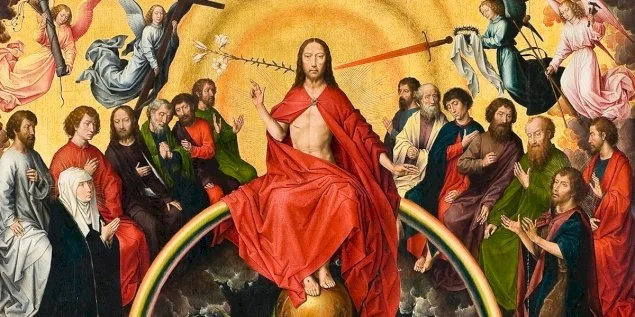Meditation of His Beatitude Patriarch Cardinal Pierbattista Pizzaballa: Solemnity of Christ the King of the Universe
Below you can find the Meditation of His Beatitude Patriarch Cardinal Pierbattista Pizzaballa, Latin Patriarch of Jerusalem, for the Solemnity of Christ the King of the Universe, Sunday 26 November 2023.
We might think of the disciple's journey as a journey of learning to see.
Today, in fact, is a day that speaks of fulfillment, of the end: a liturgical year comes to an end, but the reading of Matthew's Gospel also comes to an end. Within this Gospel, today we read the conclusion of the eschatological discourse, but it is also the conclusion of the part of Matthew's Gospel that precedes the Passion narrative.
And the parable that the Liturgy offers us today helps us to experience this turning point, because it is like a point of arrival, a synthesis; and it is also a new beginning.
We were saying that the disciple's whole journey can be understood as a journey of learning to see.
In fact, the heart of today's account is marked by amazement, for all recognize that they have not seen: when did we ever see you ... (Mt 25:37,38,39,44)?
Neither of the two groups, that of the saved and those of the so-called "damned" saw Jesus. Those who served the poor, those who had mercy, did not do so because they recognized the face of the Lord in them.
Neither group saw Jesus.
But one group saw their brother, and having seen moved in them an ethical appeal, an urgency to give relief, to help their brother carry the burden of life. An image, that we encountered a few Sundays ago (Mt 23:1-12), when we were saying that a life spent in service is one that seeks to take away a brother's burdens, unlike the scribes and Pharisees, who instead of taking them away, add burdens to people's lives.
Also in that Gospel passage, the aspect of seeing returned: scribes and Pharisees do indeed bind heavy burdens, but they do not even touch them with a finger. And everything they do, they do in order to be seen.
They make themselves seen, and they do not see, because if the gaze is all on oneself, it is difficult to see the other person, one does not realize the burden he is carrying.
So the disciple's path may be this: the passage from looking at oneself, from being seen, to seeing, to realizing the pain of those we meet.
A passage that comes from listening: the whole first part of Matthew's Gospel revolved around learning to listen, because only those who listen, then see.
Today's Gospel, however, opens our gaze to a nexus that is not easy to understand, namely, the link between seeing our brother and seeing Christ.
At the moment of the final judgment, the Son of Man opens or closes the doors of the Kingdom and uses the words of an identification: he who saw his brother and fed him, clothed him, visited him..., actually, without knowing it, fed, clothed, cared for... the Lord Jesus: you did it to me (Mt 25:45)
What does this mean? What does it mean that God is in the poor, the sick, the imprisoned?...
This Meditation was already published on the website of the Latin Patriarchate of Jerusalem. Please click here to read the full text.

